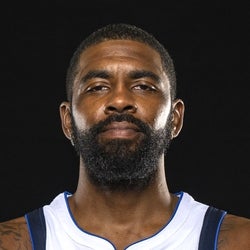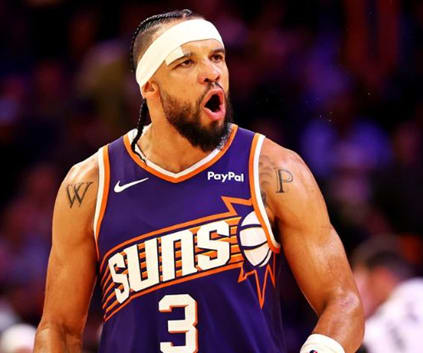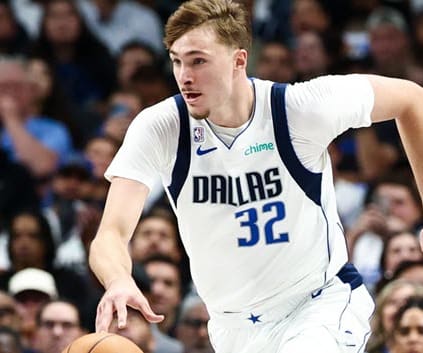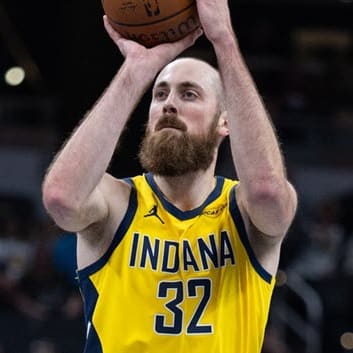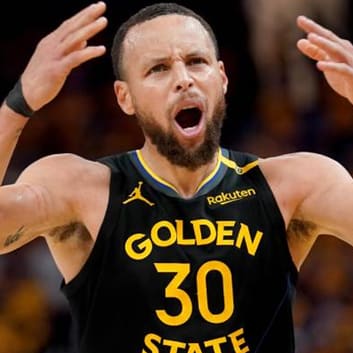Out
Injury Knee
Est. Return 2/12/2026
2025 Stats
PTS
0.0
REB
0.0
AST
0.0
STL
0.0
BLK
0.0
ROS Projections
2025 Fantasy Outlook
Irving tore the ACL in his left knee in early March and isn't expected to be ready until 2026. While that timeline significantly lowers his ADP, the veteran point guard should still impact fantasy leagues this season. D'Angelo Russell will serve as Dallas' starting point guard until Irving is ready, and the Mavericks have plenty of talent in the frontcourt to keep them afloat in the playoff race. Anthony Davis and Cooper Flagg will demand usage throughout the campaign, but if Dallas needs a bucket, Irving is still going to be the go-to guy down the stretch. Irving will be a top-30 option when he suits up, even if there are some restrictions at first. When drafting Irving, fantasy managers should know if there is an IR spot in their league and how many bench spots are available. Selecting Irving with a top-200 pick could be a league-winning move, but it may handicap your early-season roster. Read Past Outlooks
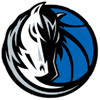
Remains without return timetable
Irving (knee) remains out indefinitely and doesn't have a return timetable, Mavericks reporter Grant Afseth said Friday during an appearance on HoopsHype's podcast 'Around the Beat.'
ANALYSIS
Irving tore the ACL in his left knee at the beginning of March, ending his 2024-25 campaign, but after undergoing surgery, the Mavericks said they were optimistic their superstar guard would return to action before 2026, per Shams Charania of ESPN. Before training camp this season, there was another positive update about Irving's recovery, with Ashish Mathur of the Dallas Hoops Journal reporting that the veteran was ahead of schedule in his recovery. However, a few days later, head coach Jason Kidd pumped the brakes, saying Irving is doing "quite well" but added that declaring he was "ahead of schedule is not fair," per Christian Clark of The Athletic. It's clear that Irving and the Mavericks don't want to pick a target date until they are absolutely certain he's ready for game action, but Afseth notes that the vibe around the organization is that Irving could return before the mid-February All-Star break. "I've personally liked, from my understanding of the situation, have long held the thought that there's optimism of a pre-All-Star break return. But that's not ever been like super like that's happening, there hasn't been a set guarantee like anything of that nature," Afseth concluded. NBA insider Marc J. Spears also relayed a promising update on Irving in mid-November, "Kyrie's looking good. He's ahead of schedule," Spears said. "He's working out with the purpose of playing this season, which I'm sure Mavs fans are glad to hear. I think, optimistic-wise, around late January, All-Star break. Someone close to him told me that if it was the playoffs, he could play right now. That's how ahead of schedule he is." Despite all the optimism, fantasy managers will be left in the dark for at least a few more weeks before we learn anything definitive. Irving has been spotted doing light, individual drills at recent practices and is spending a lot of time mentoring Cooper Flagg.
Irving tore the ACL in his left knee at the beginning of March, ending his 2024-25 campaign, but after undergoing surgery, the Mavericks said they were optimistic their superstar guard would return to action before 2026, per Shams Charania of ESPN. Before training camp this season, there was another positive update about Irving's recovery, with Ashish Mathur of the Dallas Hoops Journal reporting that the veteran was ahead of schedule in his recovery. However, a few days later, head coach Jason Kidd pumped the brakes, saying Irving is doing "quite well" but added that declaring he was "ahead of schedule is not fair," per Christian Clark of The Athletic. It's clear that Irving and the Mavericks don't want to pick a target date until they are absolutely certain he's ready for game action, but Afseth notes that the vibe around the organization is that Irving could return before the mid-February All-Star break. "I've personally liked, from my understanding of the situation, have long held the thought that there's optimism of a pre-All-Star break return. But that's not ever been like super like that's happening, there hasn't been a set guarantee like anything of that nature," Afseth concluded. NBA insider Marc J. Spears also relayed a promising update on Irving in mid-November, "Kyrie's looking good. He's ahead of schedule," Spears said. "He's working out with the purpose of playing this season, which I'm sure Mavs fans are glad to hear. I think, optimistic-wise, around late January, All-Star break. Someone close to him told me that if it was the playoffs, he could play right now. That's how ahead of schedule he is." Despite all the optimism, fantasy managers will be left in the dark for at least a few more weeks before we learn anything definitive. Irving has been spotted doing light, individual drills at recent practices and is spending a lot of time mentoring Cooper Flagg.
NBA Per Game Stats
Per Game
Total
Per 36
NBA Per Game Stats
Loading Per Game Stats...
2024 NBA Game Log
2024
2023
2022
2021
2020
2019
2018
2017
2016
2025 NBA Per Game Split Stats
Schedule
By Month
Starting/Off Bench
Days Rest
Vs Opp
By Result
2025 NBA Per Game Split Stats
Loading Split Stats...
Advanced Stats
Loading Advanced Stats...
Stat Review
2024
2023
2022
2021
2020
2019
2018
2017
2016
How does Kyrie Irving compare to other players?
This section compares his stats with all players from the previous three seasons (minimum 200 minutes played)*. The bar represents the player's percentile rank. For example, if the bar is halfway across, then the player falls into the 50th percentile for that stat and it would be considered average.
True Shooting %
59.4%
Effective Field Goal %
54.9%
3-Point Attempt Rate
38.0%
Free Throw Rate
22.6%
Offensive Rebound %
3.7%
Defensive Rebound %
10.6%
Total Rebound %
7.3%
Assist %
20.5%
Steal %
1.6%
Block %
1.1%
Turnover %
8.0%
Usage %
27.4%
Fantasy Points Per Game
40.5
Fantasy Points Per Minute
1.1
NBA Historical Fantasy Stats
Historical ADP
Loading Historical ADP...
Mavericks Depth Chart
Our full team depth charts are reserved for RotoWire subscribers.
Subscribe Now
Mavericks Rotation: Minutes Breakdown
Loading Mavericks Rotation Data...
Average Fantasy Points
Minutes
FanDuel
DraftKings
Yahoo
FantasyDraft
Head2Head
Sorare
Average Fantasy Points are determined when Kyrie Irving was active vs. non-active during the season. Click here to view average fantasy points for a different time period.
Loading Average Minutes...
Past Fantasy Outlooks
2024
2023
2022
2021
2020
2019
2018
2017
2016
2015
2014
2013
2012
2011
After a rocky ending to his Brooklyn tenure, Irving went about his business quietly in 2023-24 - his first full season as a Maverick. Dallas got hot after the trade deadline and made a surprise run to the NBA Finals but failed to compete with Boston. Over the last six seasons, Irving has played more than 50 games four times. He finished 16th, 10th, 21st and 29th in eight-category leagues during those four seasons. Like many aging superstars, Irving's fantasy value is tied to how many games he can suit up for, but he's proven he can have an elite fantasy finish while also participating in load management. Coming off a lengthy postseason, it wouldn't be surprising if Irving rested more to begin 2024-25 than usual, but the Mavericks will need all the games they can get out of the 33-year-old, as the Western Conference figures to be a gauntlet yet again. Irving also underwent left hand surgery in mid-July but is expected to be healthy by training camp in the fall. Dallas made a few splashes this offseason, adding Klay Thompson, Spencer Dinwiddie, Naji Marshall and Quentin Grimes, but if anything, the added shooting should open up more space for Irving to operate, as opposed to taking touches away from the veteran. Irving probably won't deliver first-round fantasy value again, but he's a safer pick this season than in previous years given his lack of off-court antics in Dallas.
More Fantasy News

Not ahead of schedule
At Media Day on Monday, Mavericks head coach Jason Kidd refuted the report that Irving (knee) is ahead of schedule in his recovery, Christian Clark reports.
ANALYSIS
Subscribe now to instantly reveal our take on this news.
Subscribe now to instantly reveal our take on this news.

Ahead of schedule in recovery
Irving is ahead of schedule in his left ACL recovery, Ashish Mathur of the Dallas Hoops Journal reports.
ANALYSIS
Subscribe now to instantly reveal our take on this news.
Subscribe now to instantly reveal our take on this news.

Extension with Dallas looming
Irving (knee) is declining his $43 million player option and intends to sign a three-year, $119 million deal with the Mavericks, Shams Charania of ESPN reports.
ANALYSIS
Subscribe now to instantly reveal our take on this news.
Subscribe now to instantly reveal our take on this news.

Aiming for January return
The Mavericks have optimism that Irving (knee) could be ready to make his 2025-26 debut in January, Shams Charania of ESPN reports.
ANALYSIS
Subscribe now to instantly reveal our take on this news.
Subscribe now to instantly reveal our take on this news.

Done for season with torn ACL
Irving will miss the rest of the season after he was diagnosed Tuesday with a torn ACL after exiting Monday's 122-98 loss to the Kings with a left knee injury, Shams Charania of ESPN reports.
ANALYSIS
Subscribe now to instantly reveal our take on this news.
Subscribe now to instantly reveal our take on this news.
Latest Fantasy Rumors

Considered untouchable
Irving is considered untouchable in trade talks, according to NBA reporter Marc Stein.
ANALYSIS
Like Cooper Flagg, Irving is considered to be off limits as the Mavericks reassess their roster. Stein notes that nearly everyone else on the team could be discussed in trade talks, and Dallas' recent struggles have intensified the scrutiny. Irving, who is rumored to be in the final stages of his ACL injury rehab, remains a foundational piece that the Mavericks seem happy to build around.
Like Cooper Flagg, Irving is considered to be off limits as the Mavericks reassess their roster. Stein notes that nearly everyone else on the team could be discussed in trade talks, and Dallas' recent struggles have intensified the scrutiny. Irving, who is rumored to be in the final stages of his ACL injury rehab, remains a foundational piece that the Mavericks seem happy to build around.


